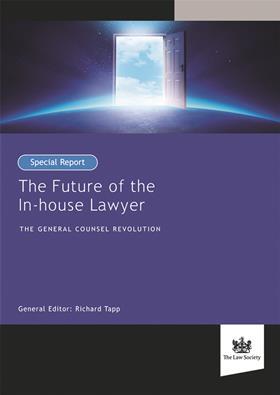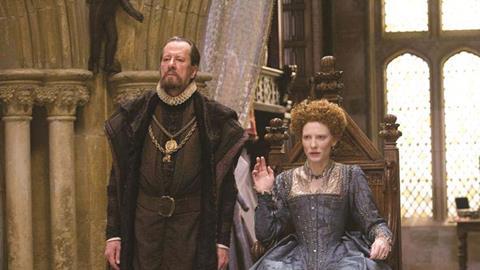Three relationships are fundamental in an organisation. Those between: the chief executive officer and the chair; the CEO and the chief financial officer (CFO); and the CEO and general counsel. Never has this final relationship been so important, as the world in which we live and work evolves so rapidly and becomes ever more closely integrated. A successful working relationship can be fundamental to a successful business. An ineffective relationship can place the business in jeopardy, so it is vital to make it work.

The demands of modern business are more complex than ever. As a result, many of the key roles in an organisation have changed significantly in recent years. Of them all, though, that of GC is perhaps one of the most complex – and one that has been transformed as the world has changed.
In thinking about the ways in which that transformation is manifest, three key factors are worth exploring:
- my expectations of the GC;
- what might be called ‘the general counsel skillset’; and
- the CEO/GC relationship.
By necessity, this is a personal view and does not by any means set out to capture the full range of issues, skills and requirements of a GC. Rather, it is an attempt to highlight some of the issues regarding expectations, skills and the relationship which seem to be important in building an effective working basis between the CEO and the GC.
Expectations of the GC
So what are my expectations of the GC? The ability to steward the organisation’s legal needs is an obvious requirement – but alone it is not enough. Of course, legal and regulatory issues are critical, and the GC must oversee them in a way which is much broader than that of simple legal advice.
Context of the role
They must also have an awareness of the commercial, strategic and operational context of the business, and how it relates to its place in the society and communities in which it operates. They must also understand how the organisation’s employees and other stakeholders relate to one another and to the business itself – and they must have a skillset which allows them not only to support the business’s legal needs, but to identify, communicate and manage evolving risk.
Relationships
Key here is the need for the GC to focus on a unique set of relationships. Most executive roles have a single reporting line, and in carrying out their role they can operate through a clearly defined structure. The GC role is different and they have multiple and complex relationships to manage. The GC must relate to: the chair and board of directors; colleagues at all levels within the business; and a range of external stakeholders. Crucially, of course, they must also relate to the CEO. The GC must understand the personalities, pressures and conflicts inherent in those relationships, while at the same time appreciating how each fits and relates to the other. Above all, the GC is often the linchpin who can help find a solution to a difficult problem that meets the needs of the business without jeopardising its risk profile.
Governance
Those complex relationships are underpinned by a set of responsibilities and demands. More than ever, the governance and compliance of an organisation are critical to its prosperity, even to its survival. The GC must be able to define, position and implement a structure of governance within which the board can lead, protect and enhance the business. Self-evidently, that requires mastery of the legal and regulatory framework within which the business operates – not only domestically, but in the international sphere, and in the context of the increasing trend to extra-territoriality. They must understand the political imperatives behind the governance framework, and be able to guide the board and the organisation through current and anticipated change – and to highlight any changes which might be beyond the horizon, but no less important to the organisation.
The GC is often the linchpin who can help find a solution to a difficult problem that meets the needs of the business without jeopardising its risk profile.
Equally, the GC must understand (and ensure that the board understands) the risks and imperatives involved, at both a corporate and an individual level. Everyone who undertakes a board or corporate role takes on a significant range of personal responsibilities, which affect not only the reputation and wellbeing of the organisation, but the personal repute and career of those involved. The GC must ensure that each of them understands the responsibilities they assume, and also that a framework is provided which allows them to function within the boundaries of the law, ethical behaviours and good corporate practice.
Evolution of the organisation
They must also understand that an organisation is constantly evolving. For the GC, that means they must focus on past, present and future.
From the past, the GC is often the keeper and custodian of corporate knowledge, knowhow and history – vital to deal with legacy issues, as well as to ensure that mistakes are not repeated.
They must also have a keen sense of the organisation’s present – its place in its markets, in society and in its business context – and the implications that has for operations, policies and behaviours.
Importantly, though, they must have an eye to the future – understanding where the business is going; what drives it; what risks it faces; and what is going on in the outside world which may come to influence – or even threaten – the organisation’s future.
GC skillset
I take it as read that the GC is highly capable as a lawyer and instead will focus on the skills necessary for them to operate successfully.
I am conscious that much has been written about the roles a GC might be expected to fulfil in different organisations – adviser, counsellor, the keeper of the corporate conscience, policymaker and, perhaps, enforcer (to name but a few). I am also aware that the GC role is one of the few within the C-suite and executive roles where there can be ready and successful transition between sectors – indeed, where perhaps experience of a different sector can be helpful.
As such, it is important to focus on the underlying skillset of the GC which allows them to carry out their role effectively in an organisation.
Analysis
It might be said that one of the key skills of a lawyer is that of analysis. For the GC, however, that skill must be both tempered and enhanced – the analysis must take into account the need to provide a balanced and realistic assessment of risk, to communicate the issues involved within the organisation in a way in which they can be understood, considered and dealt with, and the need to achieve a workable solution to a problem.
Strategic thinking
If one of the key responsibilities of a CEO is to think constantly about the future strategy of their organisation as well as about current operations, the GC must also be attuned to that strategic thinking. They need to understand the drivers and risks of their organisation’s plans and strategy, and the external influences and factors which may have an impact on the organisation in the future.
Contextual awareness
No organisation operates in a vacuum. It is the product of a complex web of commercial, economic, political and personal relationships which position it in its markets. The speed at which those relationships change has transformed in the last decade with the impact of social media – both on the way in which many organisations do business and on how others react to us. In my own sector, the role of technology, new media and social media has transformed the way we deliver and interface with our clients.
At the same time, it is a reality of modern business that many organisations face external influences which may not always be benign, such as cybersecurity, or the attention of groups who may wish to change or protest against a particular issue.
The learning GC
All this means that the range of issues which the GC needs to know about is likely to have changed beyond recognition since they emerged from law school. Many of these issues will be legal or regulatory, such as the increasing requirements or impact of governance and compliance. Others will have been brought about by changes in business practice, such as online commerce. Still more will be the product of the speed of modern life and the need to react to social media in real-time.
Law as a business
The fact that a GC has chosen to build a career in-house should (but I suspect does not always) mean that they want to create a role which differs somewhat from the role of a partner in a law firm.
In practical terms, that means that the role and the way it is implemented should be driven in the same way as any other function in the business. It should be considered, defined and implemented against a formal (and dynamic) plan which is discussed and agreed at the highest level. It should take into account the pressures of the business and it should use the range of resources available to the GC to deliver timely, relevant and accurate advice across the business. Any such structure must now consider the range of options in providing for the legal needs of the business – from the in-house team and the law firm to alternative providers and technological solutions. The GC must move with the organisation to develop the right solution for its needs, both now and in the future.
Persuasion and influence
I have talked about the importance of relationships – with the chair and the board, the CEO, colleagues and stakeholders. I have also talked about the uniqueness of the role in having and needing to manage this range of formal and informal interactions, as well as the need to understand the place of the organisation in its broader context. It is clear to me that in carrying through the role of GC effectively, the ability to persuade and influence that spectrum of people is perhaps the single most important skill required.
The GC must, of course, have the power to ensure that their role and duties are carried through, and I am sure that most organisations will have the structure and process to allow this to happen. To come back to the way in which that occurs, though, the GC will frequently need to operate by persuasion and influence. They must do so by understanding the drivers, goals and stimuli of those involved, as well as the psychological influences which affect them and their broader relationships. They must consider the effect of their advice and recommendations. They must consider how best to frame their advice in a way which ensures it is accepted and implemented. And they must know when their advice is, in reality, obligation – something that the organisation must have no choice but to follow, and be able to communicate that appropriately and clearly.
The CEO/GC relationship
So, if I have covered some of my expectations of the role, and of the skills involved, what about the heart of the issue – the chief executive/GC relationship? Of all the interactions of the CEO, it is perhaps one of the most personal and one which must work on a number of levels: professional, of course, but also with trust and confidence, and utmost discretion.
As a CEO, I enjoy a number of relationships: with the chair, the board, my executive colleagues, and of course others within the business and beyond. Some of these are (at least in theory) closely defined. There is a clear definition of the role of a chair and of my own role. The responsibilities of a CFO or HR director may be seen as relating to their individual functions and external contacts, while relationships with the managing directors who lead each part of our business are clearly related to their businesses.
It is vital that the GC understands the needs of (and demands on) the CEO – and is able to deliver in the context of the working style and preferences of that individual.
The GC has a wider brief than many of these and also perhaps a less defined one. Of all those roles, it is vital that the GC understands the needs of (and demands on) the CEO and is able to deliver in the context of the working style and preferences of that individual.
The GC should be a step ahead in many respects, ensuring the CEO is briefed and sighted on issues they know will be of relevance. They should build and maintain respect. The GC should be a critical friend – understanding that it is their role not to be popular, but to ensure that issues are presented in a clear and balanced way – and have the strength of character to be able to challenge, positively, where that challenge is needed.

Above all, the GC needs to be the close confidant and adviser to the CEO on a range of matters. The world we live and operate in is changing at unprecedented speed. Running the business, the CEO must be on top of strategy, the markets, operations, finance, customer service and key people issues. Add to that the pace at which everything constantly changes and it is clear they need counsel in order to best manage the organisation, both for short-term success as well as long-term sustainability.
The GC is a crucial part of that jigsaw and will only become more important.
This is the latest in a series of thought leadership articles on the in-house lawyer sector. It is an edited version of a chapter in The Future of the In-House Lawyer: The General Counsel Revolution, published by The Law Society (£79). See The Law Society Bookshop.
The Law Society’s In-house Division is the community for in-house lawyers working in the corporate and public sectors, not-for-profit organisations and charities. It aims to bring in-house lawyers together to share best practice, and address current issues and challenges in a supportive environment.
































1 Reader's comment